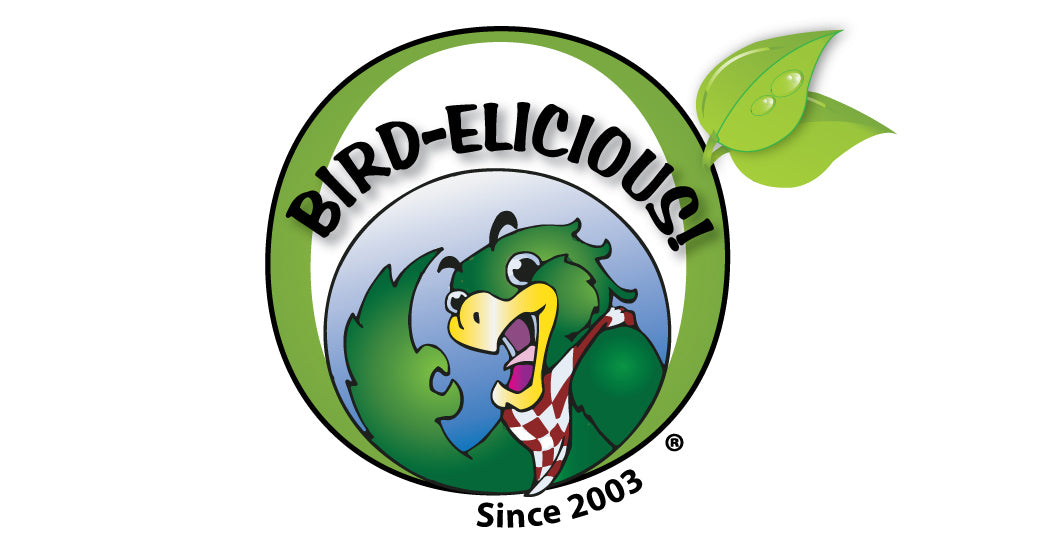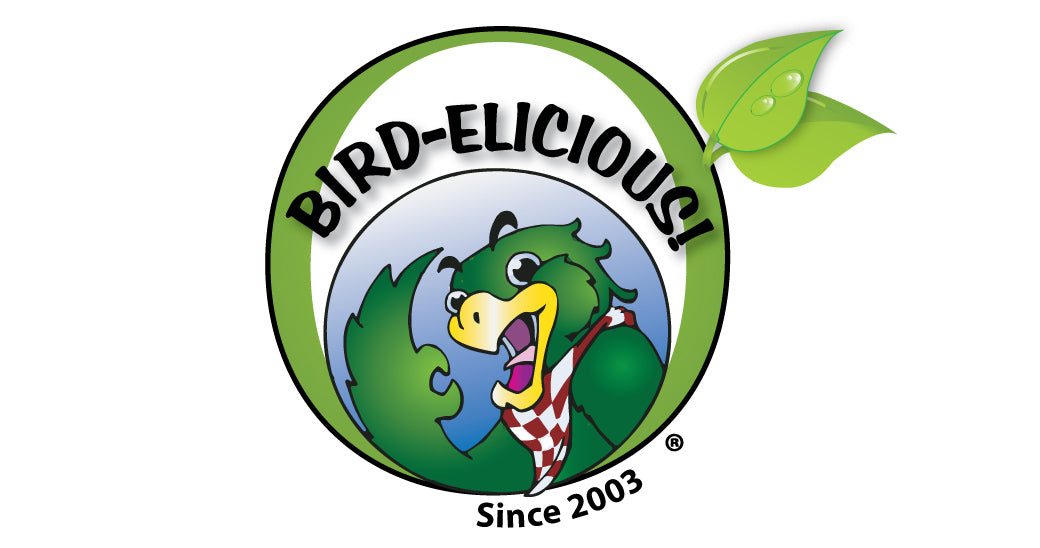There is a time, place and very good reason for everything under the sun. And so it is in the case of liver purification when a bird has been diagnosed, or you as the caregiver highly suspect your bird has liver damage by clinical examination.
In the case of liver and kidney damage we need to force the system to become more alkaline for a period of time. In fact this is true when treating many illnesses. While we don’t want the body to hold a highly alkaline state for extended periods, a highly alkaline state for short bursts of time aids in fighting serious illnesses. Bacteria, viruses, fungus and cancers cannot survive in highly alkaline environments. It is for this reason we want to create a highly alkaline environment for short bursts of time in the case of liver and kidney damage.
How do we diagnose liver damage by clinical examination?
Overgrown or quickly growing beaks and talons; discolored feathers (this could simply be lackluster feathers or as drastic as black or rusty spots on the feathers). In addition if your bird’s feathers appear greasy that could indicate liver disease. In regards to your bird’s droppings, if they are bright green, if the urates (the white part) are off-colored and not truly white…if they are yellowish or creamy colored that can indicate liver disease. If the feces come out in little “pellets” sometimes instead of worm-like shapes that can indicate liver disease. What about the whites of your bird’s eyes, if your bird has white in its eyes…are they truly white or yellowish? If yellow then that can indicate liver disease. Has your bird been diagnosed with avian diabetes or kidney problems? Often either of these lead to, or are the result of liver disease. Has your bird been on highly processed foods for most of its life? If so it is quite possible your bird has liver disease as the result of the storage of synthetic Vitamin A and Synthetic Vitamin D in its liver. Has your bird been fed a high seed diet most of its life? If so liver damage has probably set in. Has your bird been fed a high starch diet consisting of pastas, breads, flours, starchy vegetables, grains, chips, crackers, birdie snacks or cooked legumes on a regular or consistent basis? If so then those kinds of starches turn right into sugar and filter through the liver in a very similar manner as refined sugar and/or fructose. The systems of exotic birds are not designed to metabolize a large amount of fructose. WAIT? Many of you are going to question me about fructose because I endorse the feeding of fruit and fruit contains naturally occurring fructose.
Exotic birds in the wild would consume tropical fruit and fruit from the tropics are naturally low in fructose; Nature planned it that way. We need to reduce the feeding of domestic fruit to our companion exotic birds and increase the feeding of tropical fruit. In addition we need to reduce and/or eliminate most legumes and grains. If and when we feed legumes they need to be sprouted, not cooked to activate the amylase to help with the breaking down of the starch contained in those legumes. The same holds true for grains with one caveat; we should only feed grain to those species where grain is indigenous to their region of origin, and even then on a limited basis. The starch in legumes and grain, although it is resistant starch and healthier than refined sugar, is still difficult to digest due to the fact that starch fiber is a hard and waxy molecule.
Pectin fiber found in tropical fruit is gentle and soothing to the digestive tract. It is not hard, it is not waxy and unlike cellulose in botanically classified vegetables pectin both delivers nutrients and flushes toxins. Cellulose literally strips everything in its path, even nutrients from the short and narrow digestive tract of the parrot who has no cecum in which to break down cellulose like mammals do.
Below is a daily dietary recipe to place your feathered friend on for about 3-4 weeks to purify the liver. While feeding this diet I suggest you do not feed any other foods if you want a deep and thorough detoxification. If your bird has been diagnosed with liver disease you may want to feed this recipe to your bird for a longer period of time; maybe 6-8 weeks. I had one client feed this diet and nothing else for about 3 months to reverse stage 4 liver disease in her beloved African Grey and it worked. Please refer to a better schedule of time at the end of this paper. *
You will need a gram scale, yes you will be meticulously weighing and measuring the ingredients in your bird’s liver purification recipe if you want to achieve the desired results. The gram scale I have used for years is excellent; I have had zero problems with its accuracy, I have never had to repair it. I only need to replace the batteries every so often. It’s well worth every dollar I spent on it. Tanta KD-200-110: http://www.miniscale.us/shop/item/123-productId.184549572_123-catId.176160823.html (The shipping is free)
Should you choose to use this recipe you acknowledge and understand this recipe has not been laboratory tested for a guaranteed analysis. No claims regarding the nutrient content or balance. I only know from what I have witnessed clinically with my own birds that it seems to work in the detoxification of the liver and kidneys and the reduction and elimination of liver and kidney disease. I do not claim or guarantee you will have the same experience or outcome with your particular bird(s).
Liver Purification Recipe:
Please use only organic ingredients whenever possible.
Wash with food grade 3% hydrogen peroxide. You can find it online at:
http://the-living-earth.myshopify.com/products/498
• Mango: 100 grams (Peel and remove the pit and discard)
• Papaya:400 grams (Peel and remove the seeds and discard) DO NOT buy papaya from Hawaii; it is GMO. Make sure the papaya you buy is from Mexico or Brazil. You probably will not find organic papaya.
• Arugula:¼ cup finely diced –Measure after you dice
• Broccoli:¼ cup finely diced (tops only) Measure after you dice
• Kale or Swiss Chard:1/8 cup diced-not finely –Measure after you dice
• Lemon Juice:44 grams -Fresh squeezed (Only use the juice itself)
• Lime Juice:12 grams Fresh squeezed (Only use the juice itself)
• GREEN banana:2 grams
• Egg White:From one whole egg medium to large Hardboiled, not fried.
• Curly Parsley:5 grams (Dried)
• Cilantro:3 grams (Dried)
• Dandelion Greens:2 grams (Dried)
• Meal Worms:15 grams (Dried) You can buy them on our website at TheBestBirdFood.com
• Psyllium SEED Husk Powder:1/16 Tsp. –If you cannot find this we have it in our facility, but not on our website. Let me know and I can sell it to you.
• Schisandra Berry Powder:5 grams
• Terramin Clay:5 grams –You can buy it on our website at TheBestBirdFood.com
• Diatomaceous Earth (DE):3 grams
Here is a website to learn more about DE: http://www.richsoil.com/diatomaceous-earth.jsp
Here is where you can buy FOOD GRADE DE: http://www.earthworkshealth.com/products.php?AfId=F92398511008
• Wheatgrass Powder:10 grams
• Barley Grass Powder:10 grams
• Krill Oil 1000mg: –I prefer the Mercola brand at Mercola.com
• MSM2500mg: 2 grams
• Magnesium Oxide 400mg: 3/8th Tsp.
• Brazilian Coral Calcium:1/16th Tsp.
You can find this on our website at TheBestBirdFood.com
• Zinc Picolinate22mg: 1/32nd Tsp.
• Selenium200mcg: 1/8 + 1/16 Tsp.
• Alpha-Lipoic Acid50mg: 1/16th Tsp.
• Chlorella Powder:1/8th Tsp.
You can buy it here: http://www.znaturalfoods.com/Chlorella-Powder-Thin-Cell-Wall?cPath=16
Most herbs we have on our website at TheBestBirdFood.com. What we do not have you can fine at MountainRoseHerbs.com or StarwestBotanicals.com. I have found the supplements at SwansonVitamins.com and I have found their brand to usually be the most pure believe it or not.
Make all of this into a puree, except for the arugula, broccoli and kale/chard; leave those in diced form. Feed as much as your bird will eat within a 2 hour time frame. If you have to be gone during the day I highly suggest you invest in a dehydrator and dehydrate some of the puree at 110 degree for 24 hours so you have some dry to leave out while you are away.
Drinking Water:
Use only Fiji or Evian springs waters for the drinking water. Both of these have a higher pH than other waters which is what is needed to help elevate our birds’ systems pH levels. Use about 5-7 ounces per day and to that add:
Milk Thistle Extract: 6 drops (Alcohol-free is preferred, but not absolutely necessary)
Colloidal Silver 250PPM: 6 drops for 2-3 weeks only.
Please, please, PLEASE use only the brands and the amounts I suggest if you want to achieve results.
Be SURE to weigh your bird on a daily basis to ensure your bird is not losing a drastic amount of weight on this diet. Your bird should not vary any more than 2-3 grams one way or the other from day to day.
Weigh in the morning before feeding your bird at the same time each day for accuracy. Record your bird’s weight each day; don’t rely on your memory.
*Schedule:
I suggest feeding this diet for 3 weeks, off for 2 weeks. Then back on for 3 weeks, off for 2 weeks. Continue this for two complete rounds for general detox.
If your bird has been medically diagnosed with serious liver disease you may wish to feed nothing but this diet for 6-8 weeks without taking any break as long as your bird does not lose a drastic amount of weight or show any further signs of additional illness.
If you have any questions leave them in the comments box below and I will get to them as soon as I can. Please be patient; I have multiple responsibilities I am always covering.
Thank you for joining our workshop! I hope you enjoy this format of learning!
Machelle
©1.8.2016 Machelle Pacion Passion Tree House LLC All Rights Reserved
This information may NOT be shared outside of this workshop in any manner.


Leave a comment (all fields required)